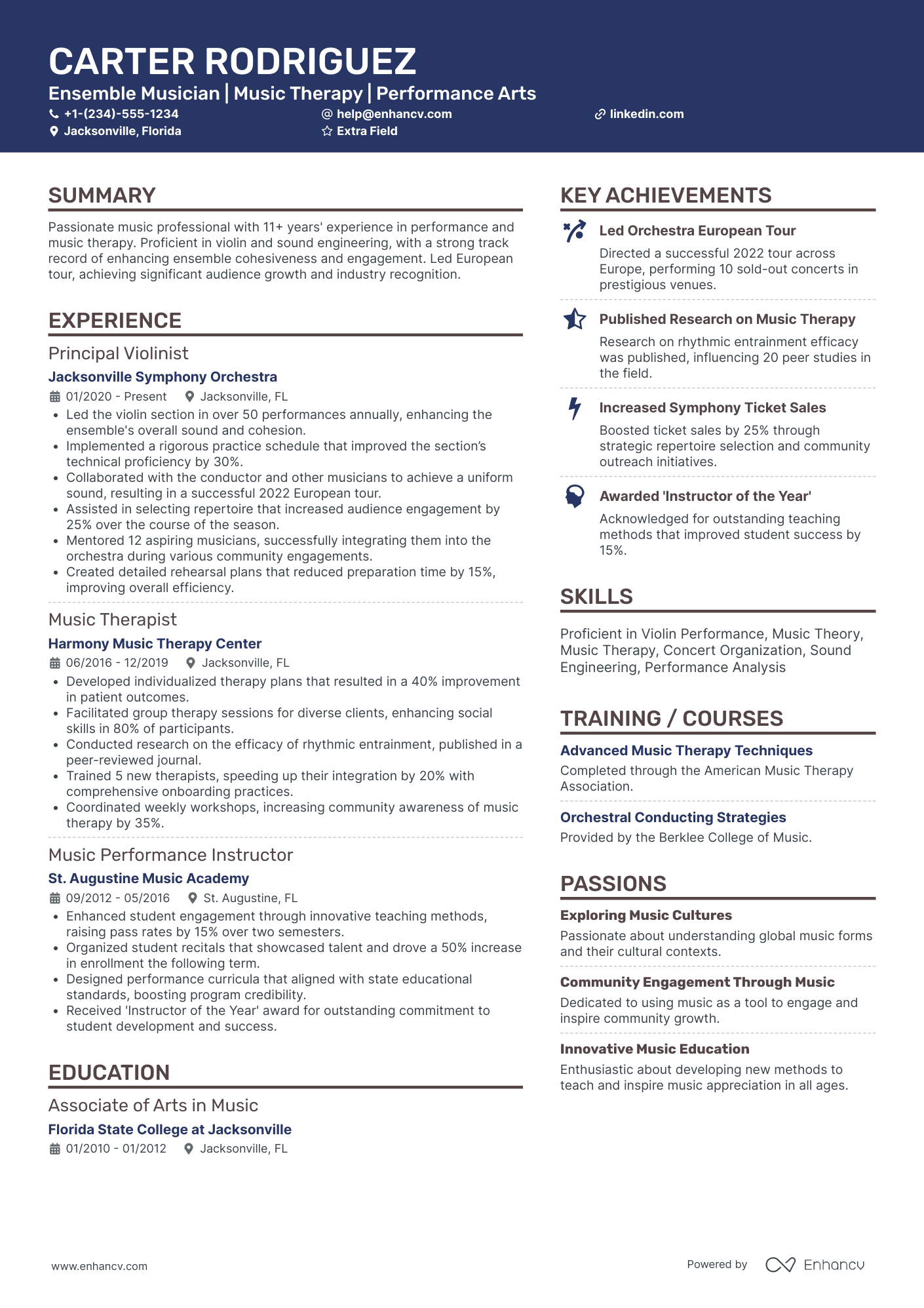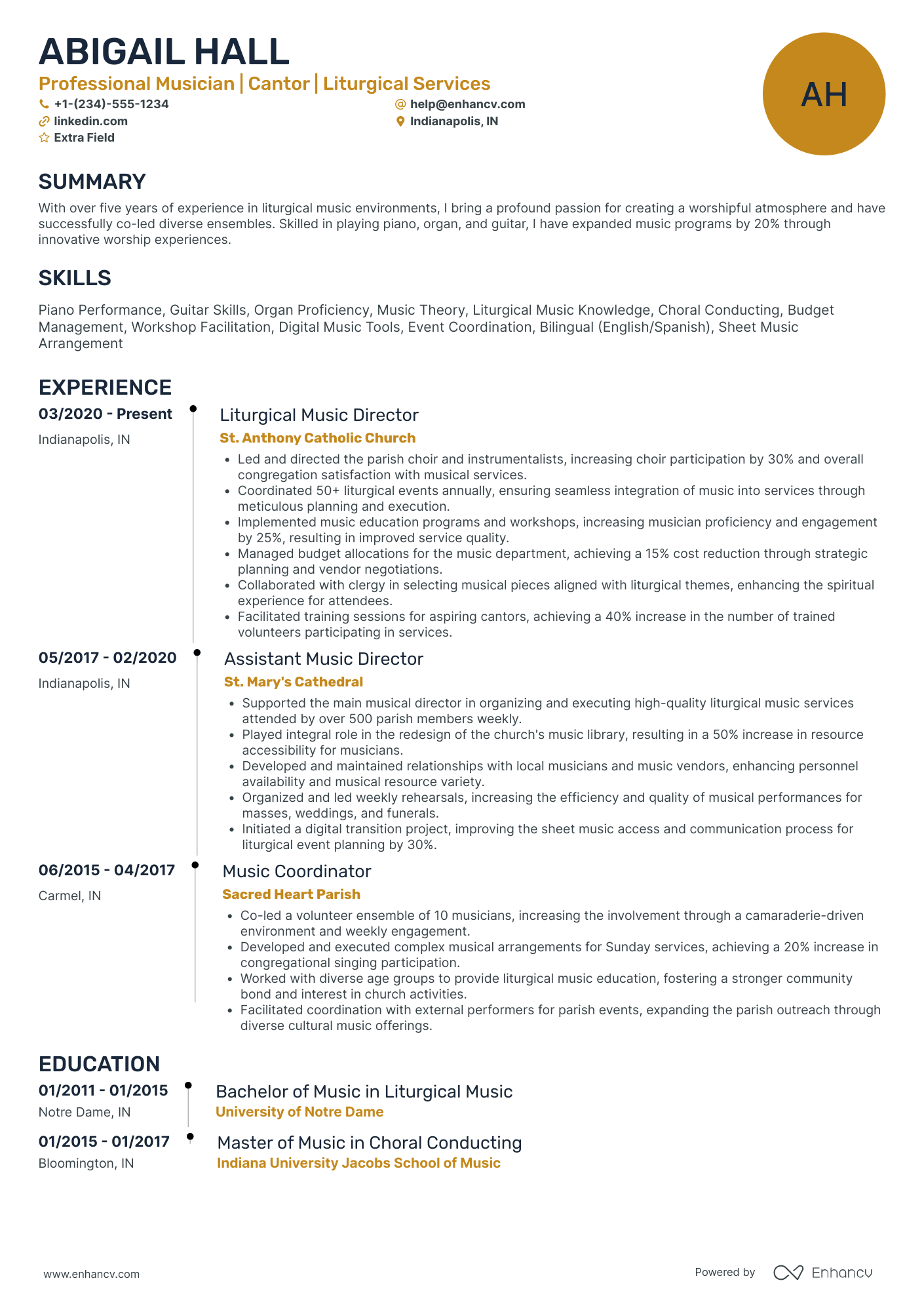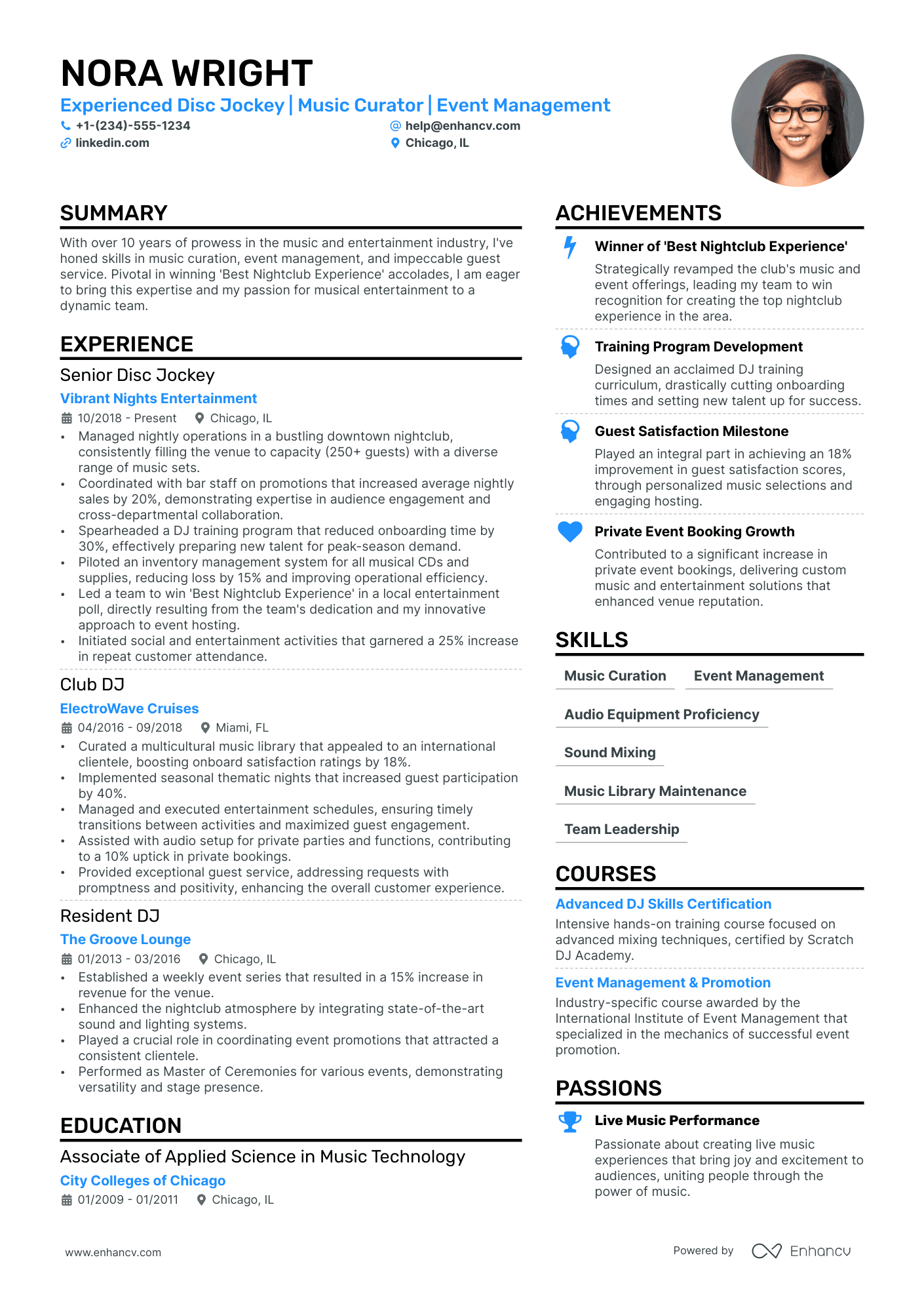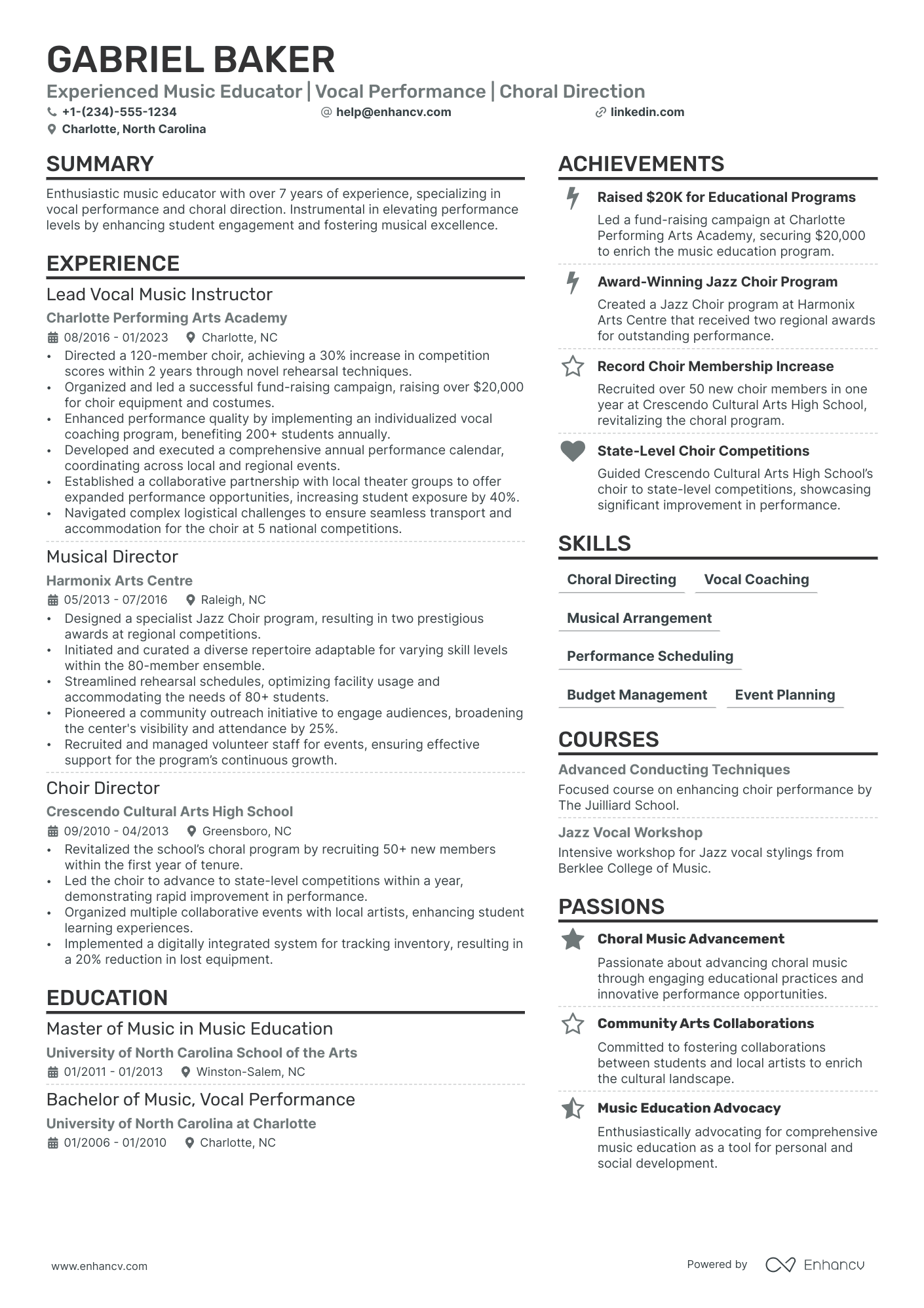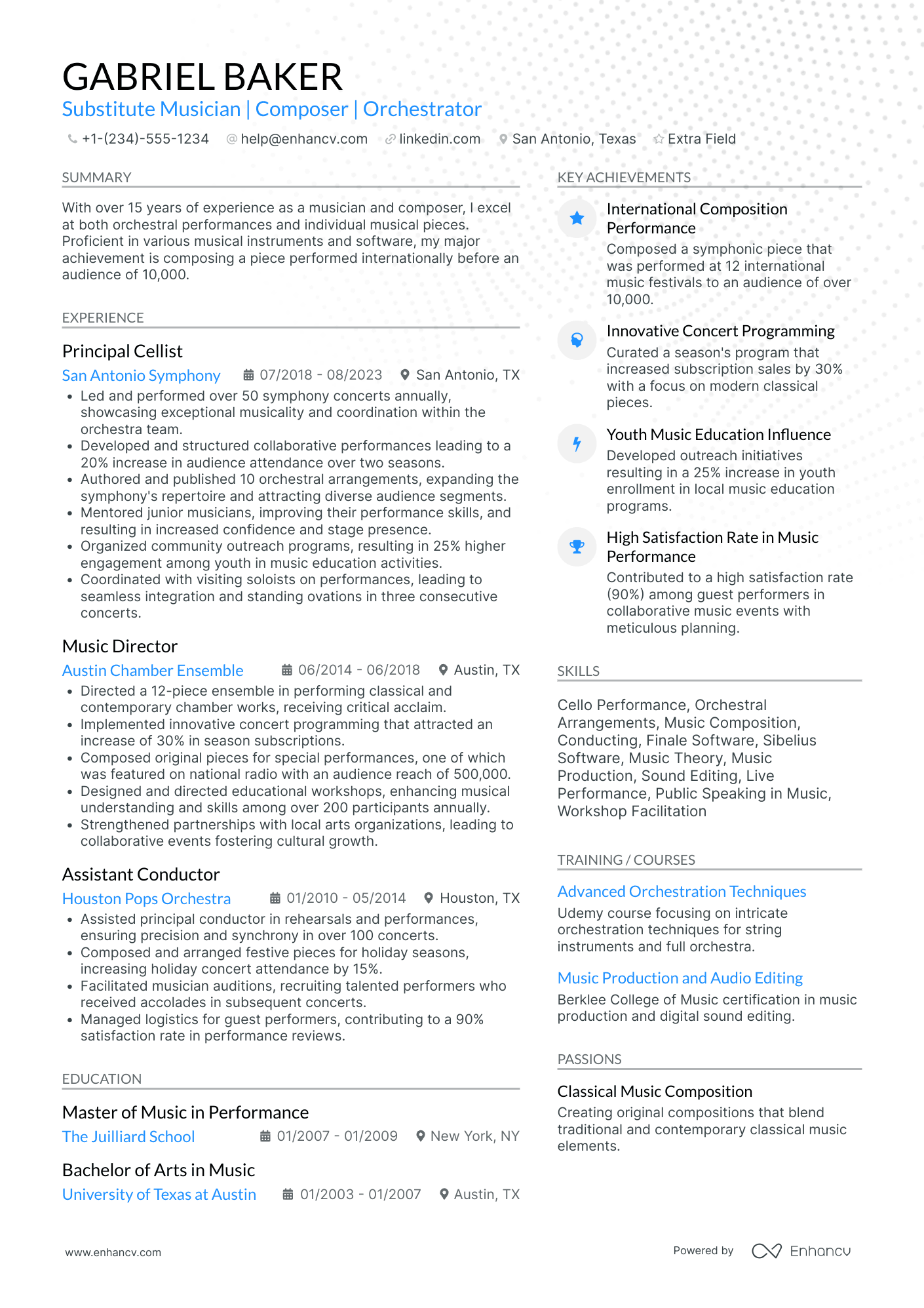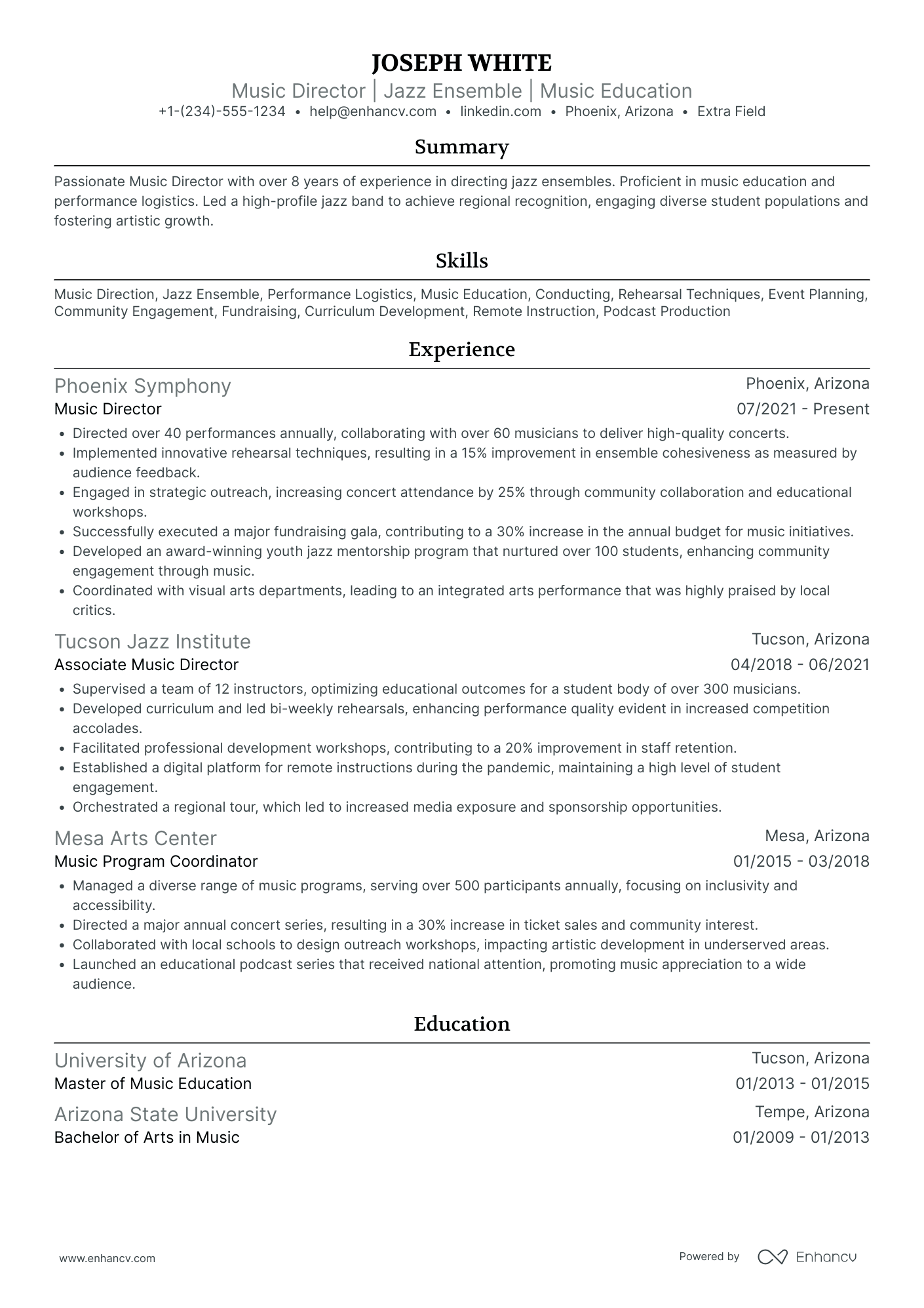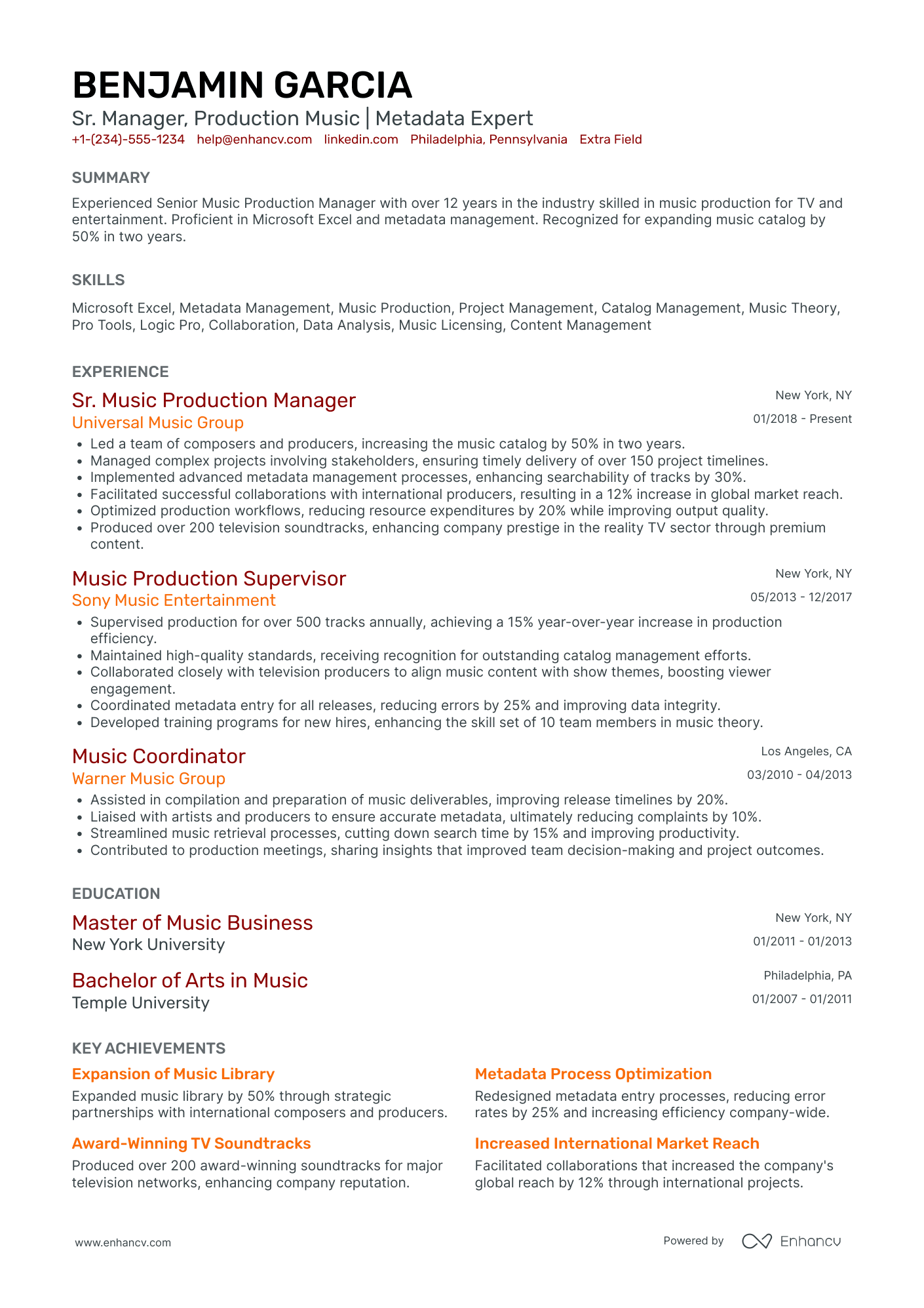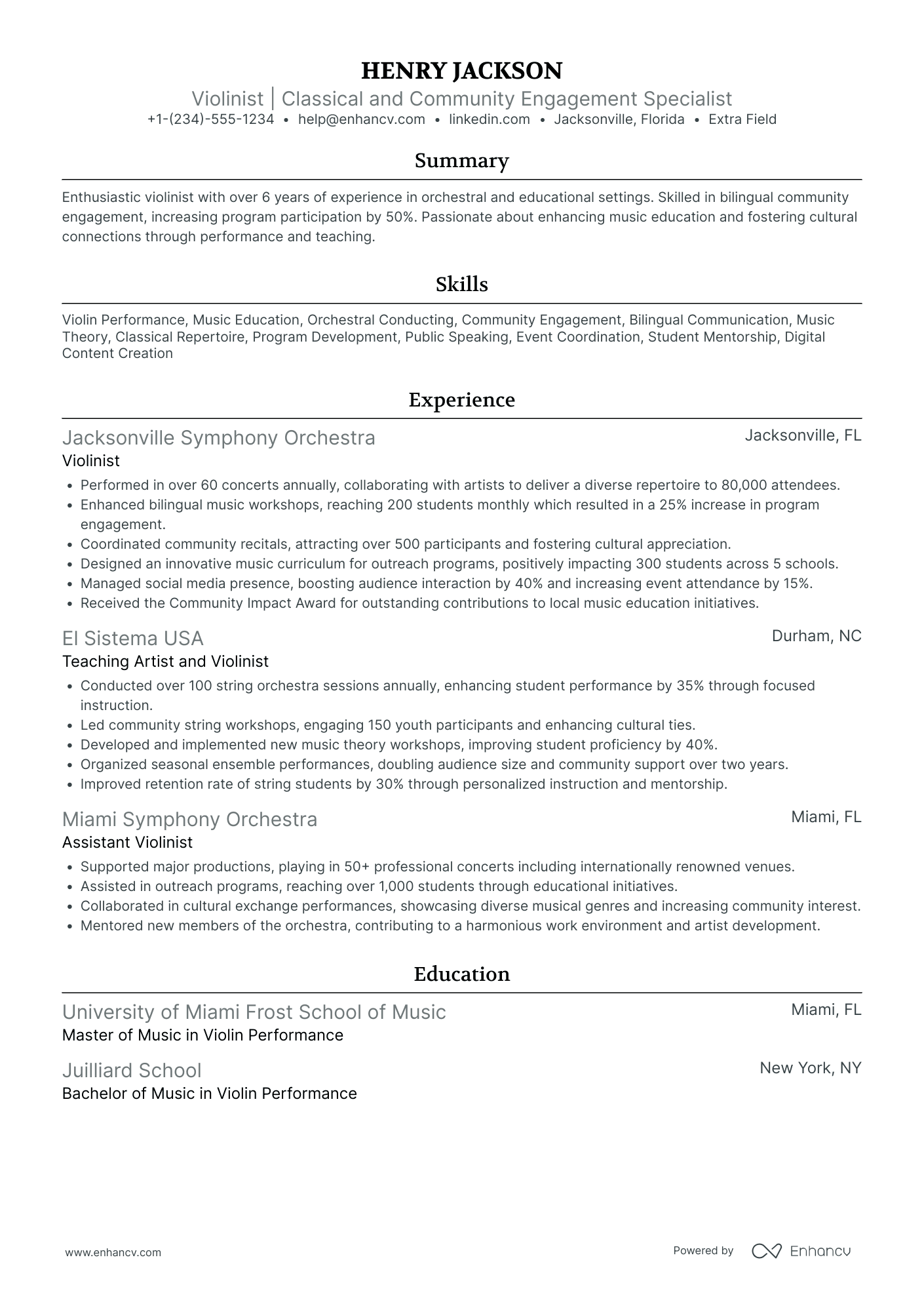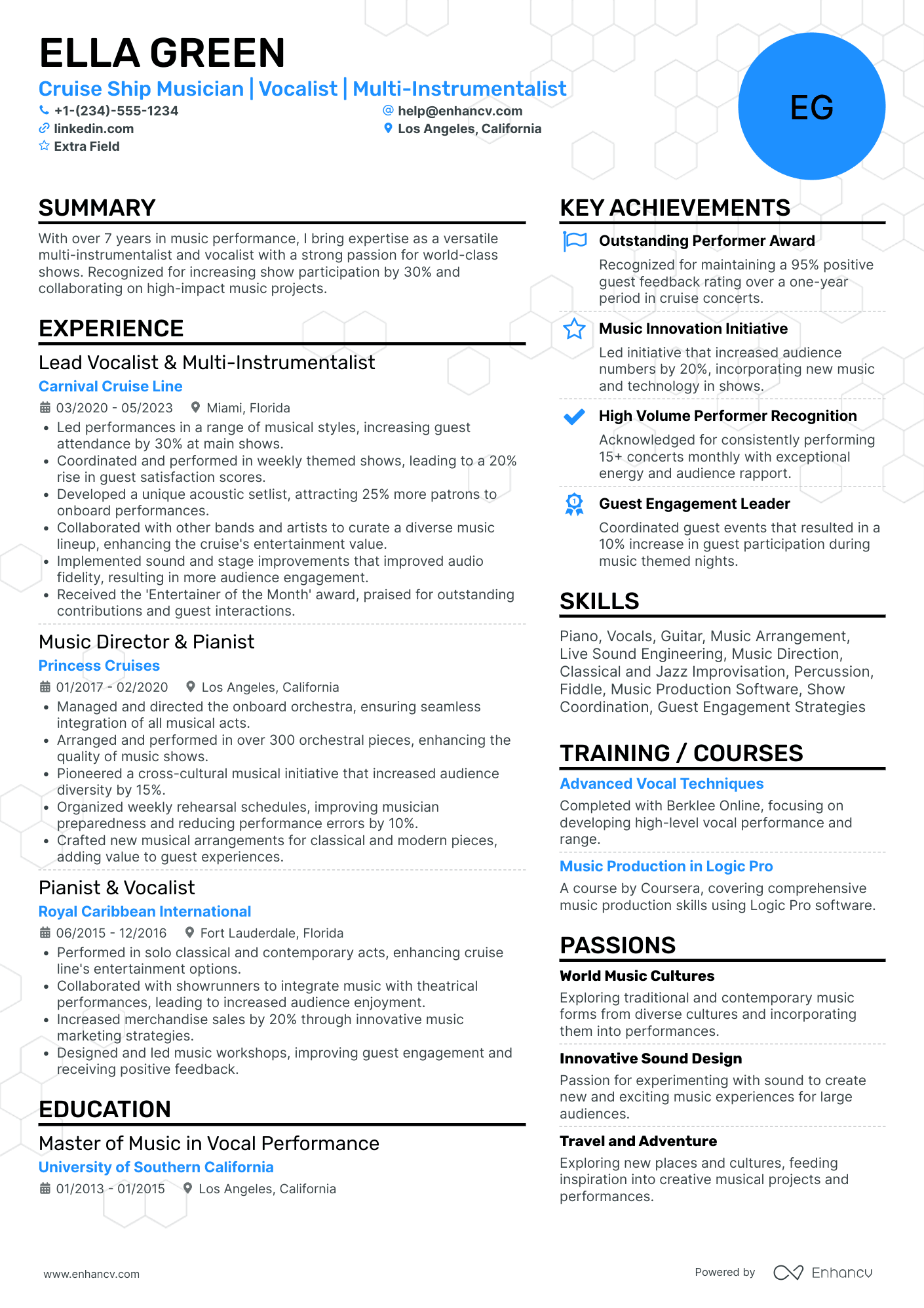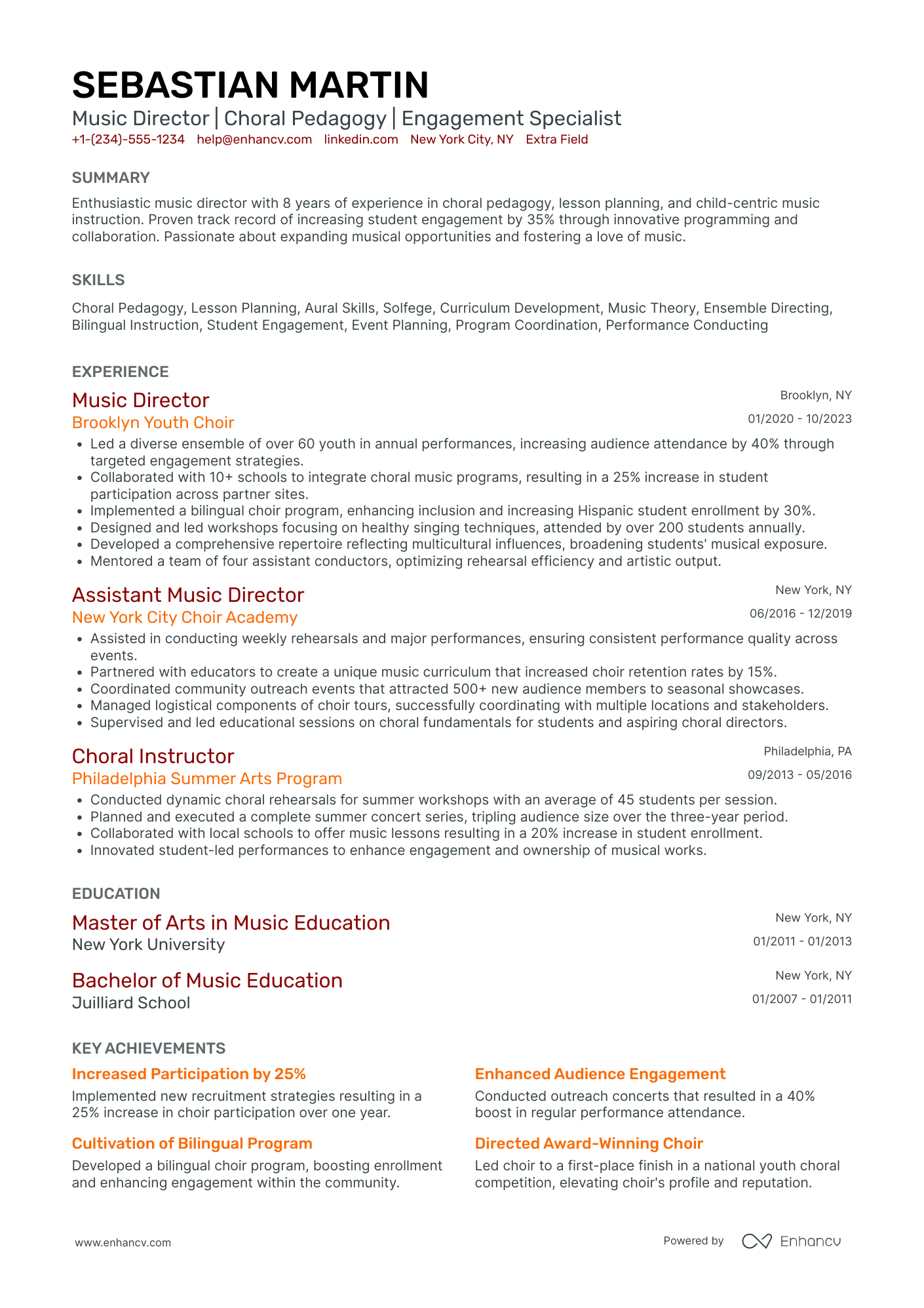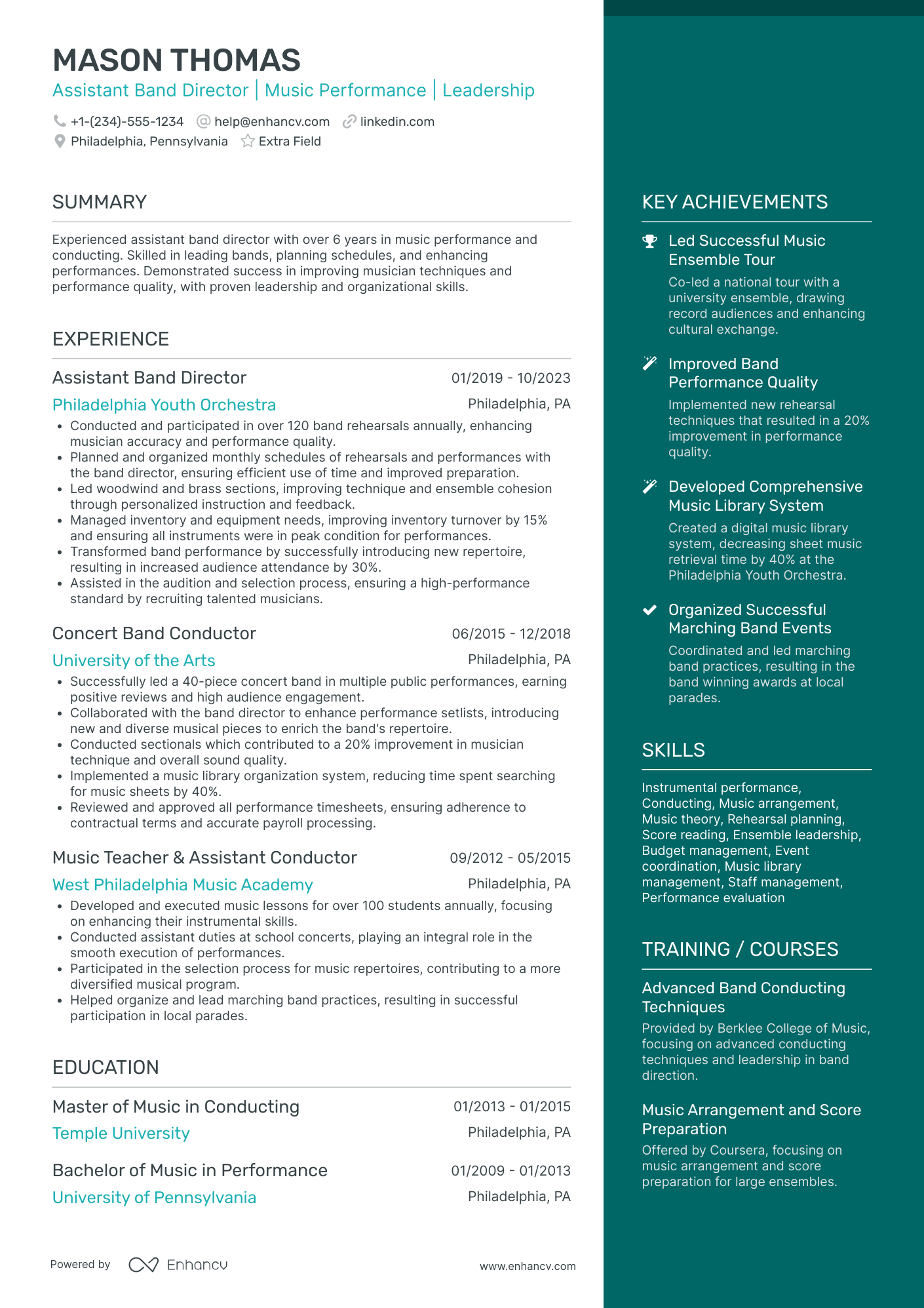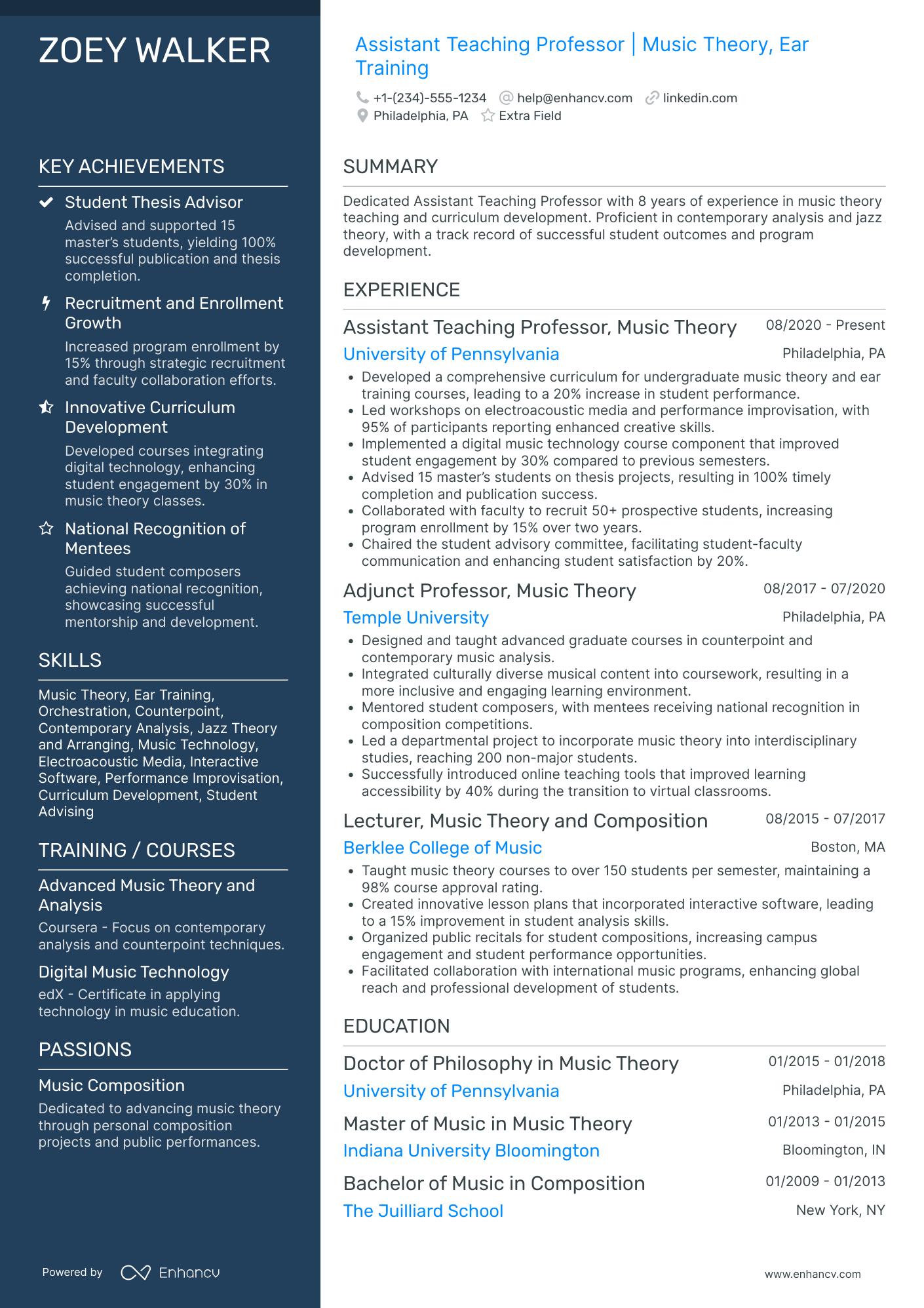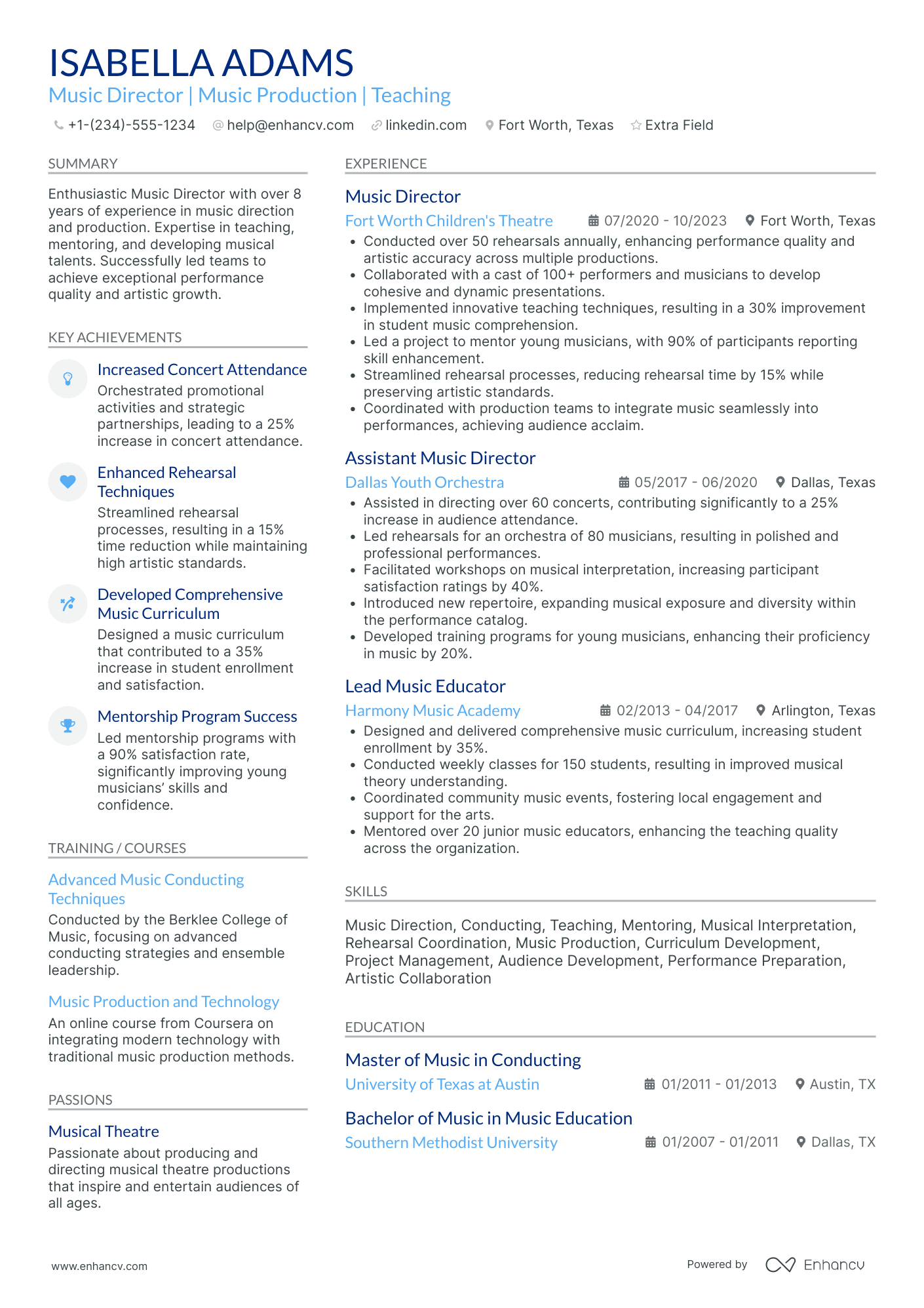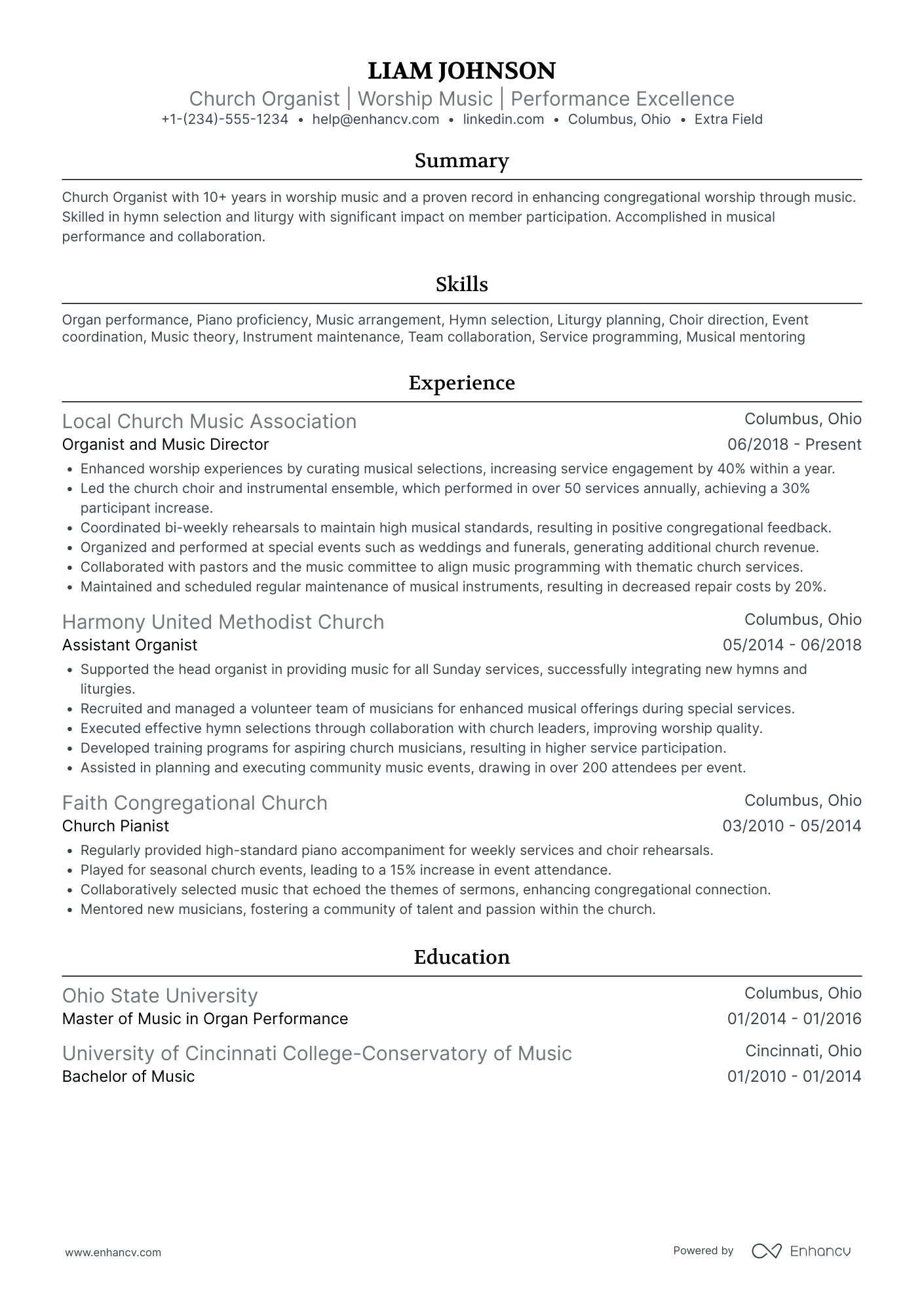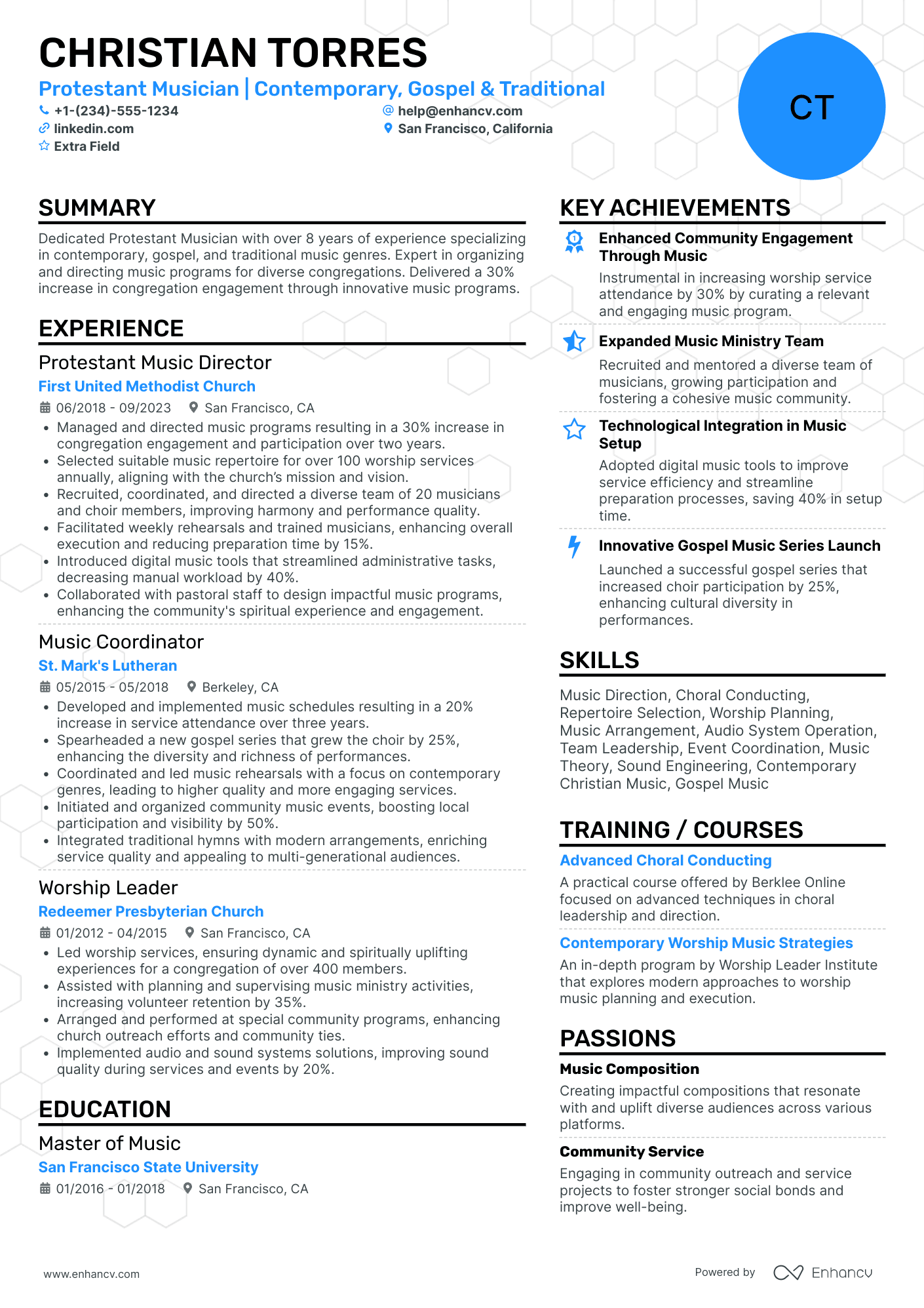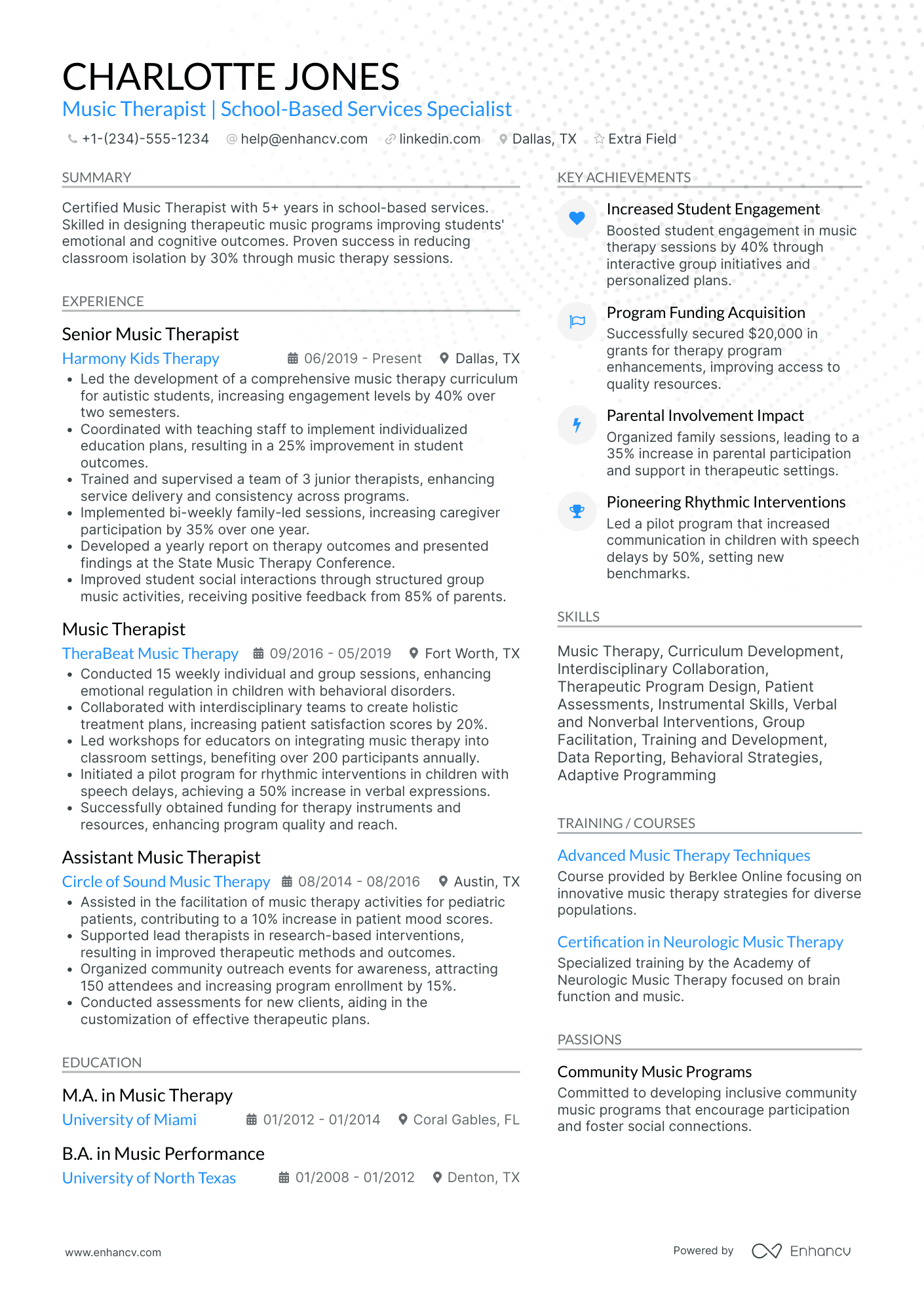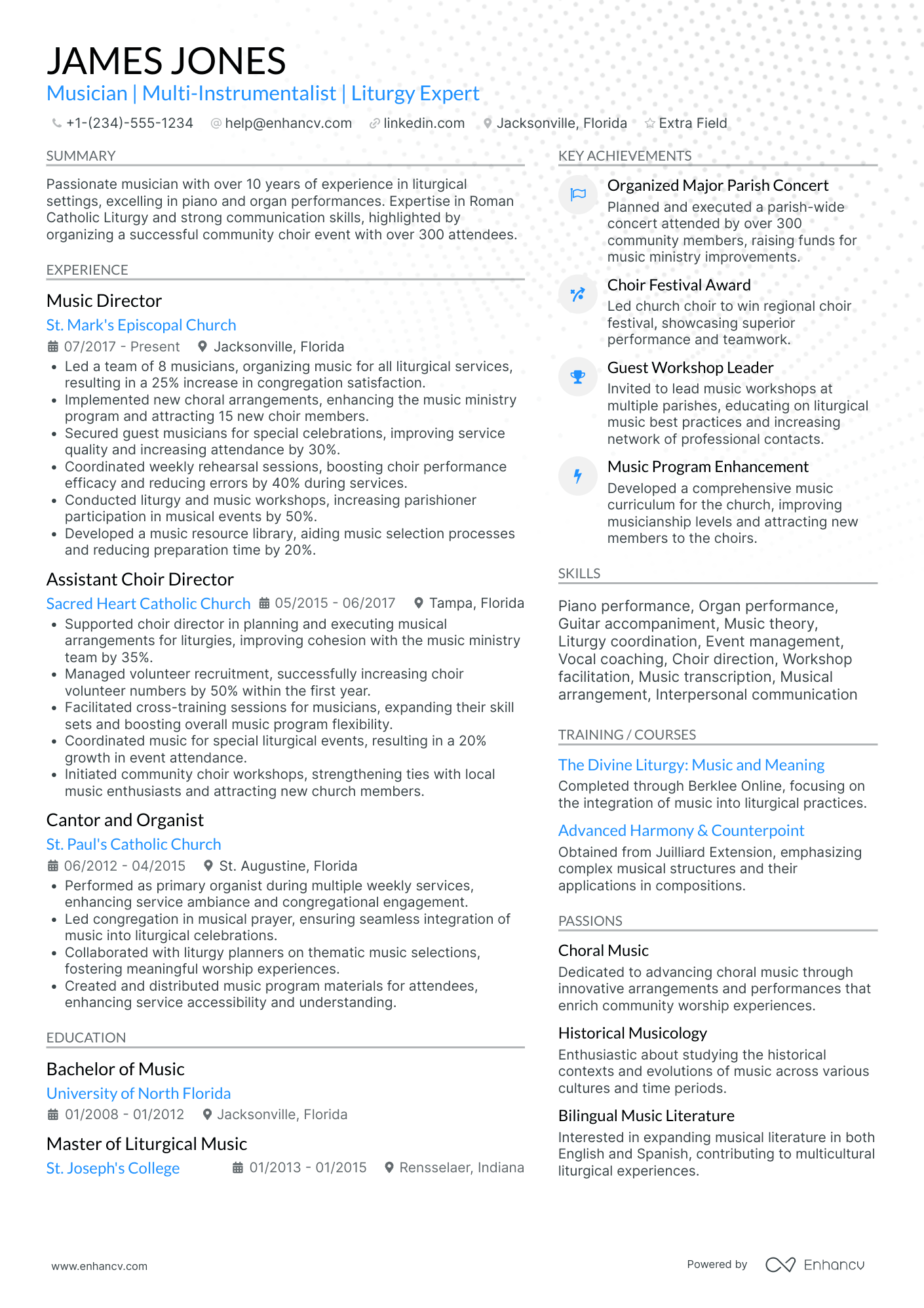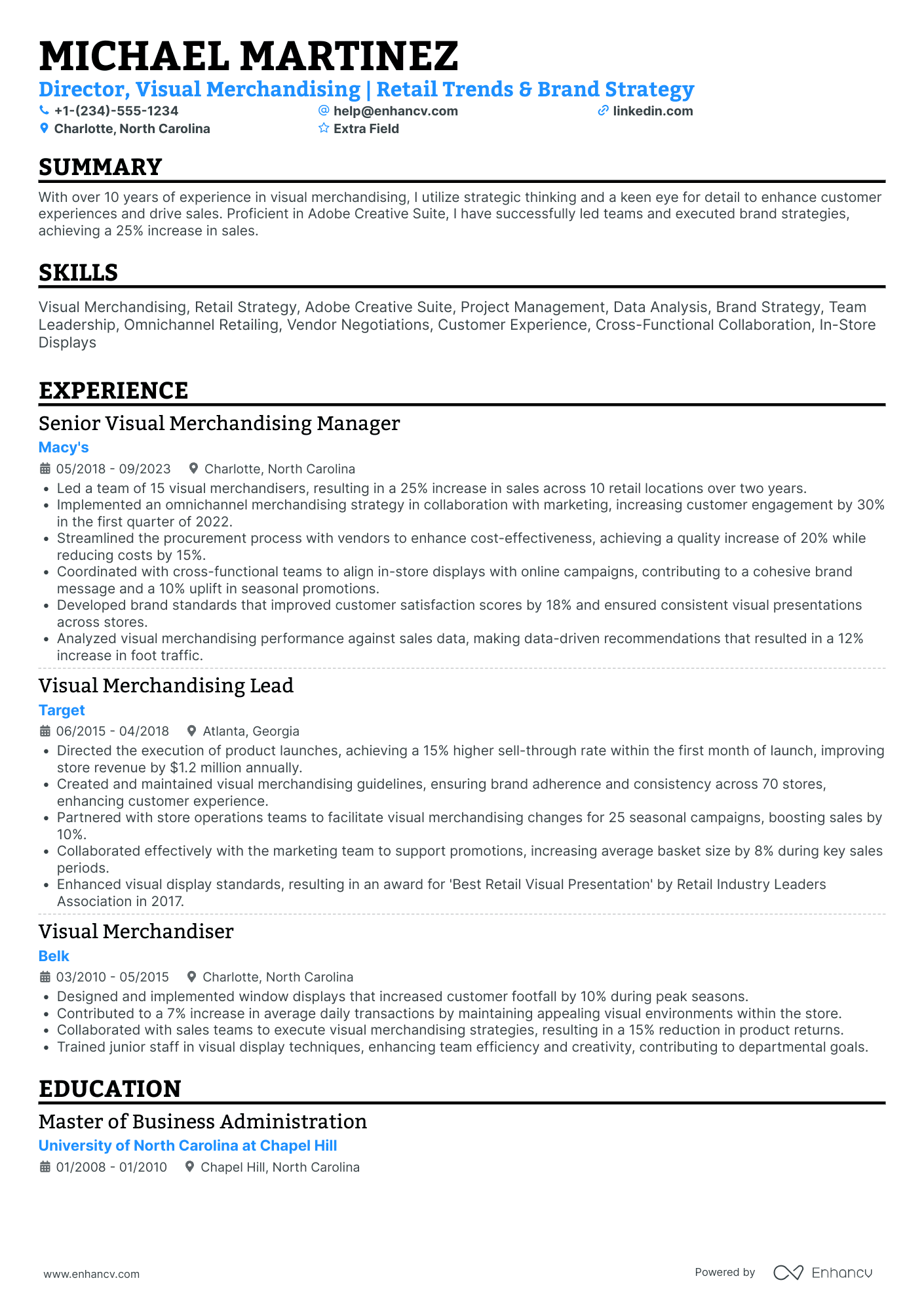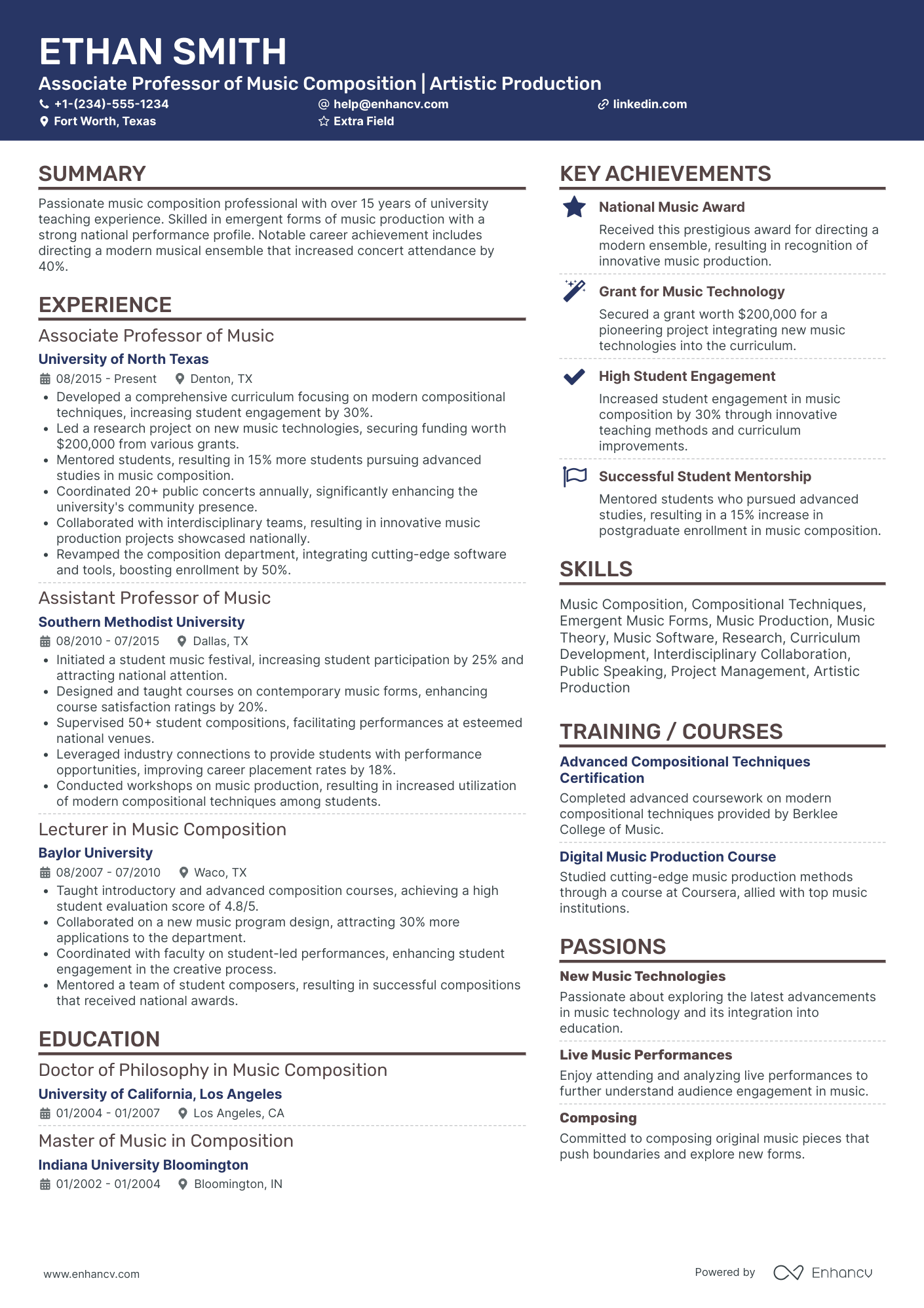Crafting a resume that highlights the diverse skills and experiences of a musician poses the difficulty of balancing creativity with professionalism. Our resume examples demonstrate how to effectively present this blend by showcasing achievements and talents in a structured format. Ready to see how you can harmonize your resume? Let's dive into the examples.
Musician resume examples
By Experience
Mid-Level Musician
Entry-Level Musician
By Role
DJ
Similar to how product management originates from software engineering, DJing as a profession has roots in the audio engineering field. Therefore, current trends in audio technology often impact the practice and popularity of DJing.
The following tips may aid your application for DJ positions:
- Previous experience with different mixing techniques can enhance your resume. Beat matching, phrasing, EQing and filter mixing are essentials in a DJ's toolkit. Display your skills in these areas prominently in your resume.
- Don't just list your abilities. Use examples to show the positive impact of your tuning skills on an event’s atmosphere. For instance, 'increased crowd engagement through...,' 'enhanced dance floor energy by...,' and so on.
- Finally, highlight the breadth of your music knowledge and how it serves the audience. Providing examples of how you've handled various genres shows your adaptability and commitment to customer satisfaction.
Music Director
Similar to DJing, Music Director's abilities can heavily influence a performance's overall outcome. A Music Director’s role emerges in conjunction with knowledge in music theory, composition, and conducting. Therefore, updates and advances in these elements can impact the Music Director's responsibilities and requirements.
Consider the following when applying for Music Director roles:
Demonstrate your knowledge in music theory, orchestration, and conducting as these are key competencies. Showcase how your skills in these areas have led to superior concert performances.
Rather than just listing your skills in arranging and composing, show the impact of your work. For example, 'received standing ovation for the original composition of...' or 'increased ticket sales with unique arrangements...'
Highlight your leadership abilities and your experience working with and guiding musicians. Show how your management and direction have positively changed a group or ensemble's performances and overall growth.
